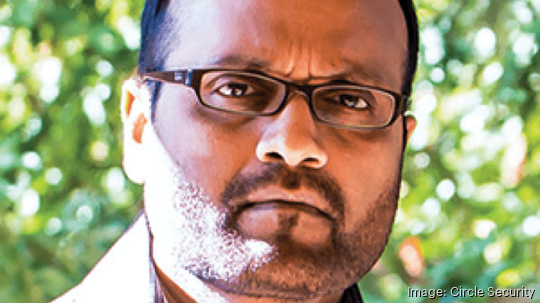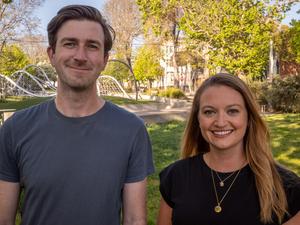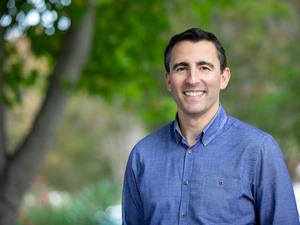
Even the most robust cybersecurity measures can fail because of human error, so a San Francisco startup is trying to eliminate that possibility by taking a decentralized approach to the issue.
Circle Security provides user authentication with or without passwords and also secures the flow of data from cloud servers. The goal is to prevent credential-based hacking and eliminate vulnerabilities from cloud storage.
CEO Phani Nagarjuna co-founded the company in 2021 with Sara Duryea, who is the company's chief of strategic deals, after realizing there was an opportunity to combine their experiences working in software, data and security.
Nagarjuna's prior clients always wanted to know how he would secure their data before they handed it over, and when he met Duryea, they realized there could be a decentralized approach to preventing cybersecurity breaches.
"The unified vision is, can I use this decentralized concept to create a threat prevention platform, not a threat detection platform," Nagarjuna told me. "Prevention is a much tougher problem to crack in cybersecurity … People believe that doesn't exist, but I don't think so. I do believe that if you focus on certain specific threats, you can build from first principles in architecture that could deliver on that promise of true prevention."
Nagarjuna described Circle Security's approach as a combination of asymmetric and symmetric cryptography that is layered on decentralized architecture.
In other words, they've eliminated the need for usernames and passwords. Instead, Circle Security authenticates "end points" like a mobile device, and those credentials can also be changed on the fly, Nagarjuna said.
Devices on the company's platform can be synched and deactivated, as well, and they can work with any public cloud computing service.
It's related to the passwordless authentication realm but goes beyond that, Nagarjuna told me.
"With Circle, you don't need any credentials. No username, no password, no nothing," Nagarjuna said. "People talk about passwordless very loosely, but in reality, what most solutions deliver is a passwordless experience."
The difference, he said, rests on whether or not there are still usernames and passwords utilized in the underlying infrastructure, and Circle can work with either scenario.
"My starting point of the authentication journey begins with not having any passwords at all," Nagarjuna said, but "Circle enables both. For companies that do not want to alter their existing credential-based environment, Circle comes in as a layer on top of it and changes those credentials on the fly."
The company launched its service earlier this year and currently has a dozen customers, with a dozen more that are lined up in the piloting stage.
Circle Security hasn't disclosed its total funding but says it raised a seed round and has 20 employees.
Nagarjuna is aiming to reach 100 customers and grow sales by $10 million to $20 million over the next year or two.
"But more importantly," Nagarjuna said, he wants to "take this transformative app architecture that we have created and build awareness and recognition."
Cyberattacks will cost organizations $10 trillion-worth of annual damages by 2025, according to a recent McKinsey report, and only 10% of the addressable market is being served by cybersecurity companies.
If fully penetrated, the cybersecurity market could be worth $2 trillion, the McKinsey report said.
Last year, the cybersecurity market was worth more than $202 billion globally, according to Grand View Research, and is expected to grow by around 12% annually through 2030.








